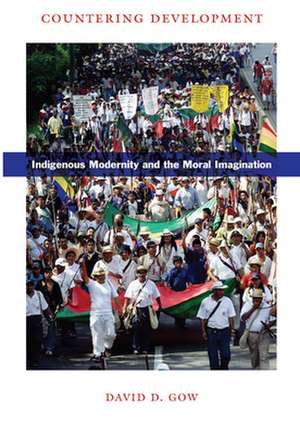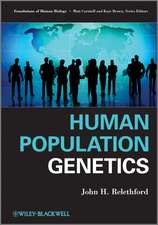Countering Development – Indigenous Modernity and the Moral Imagination
Autor David D. Gowen Limba Engleză Paperback – 20 mai 2008
Preț: 263.29 lei
Nou
Puncte Express: 395
Preț estimativ în valută:
50.39€ • 52.41$ • 41.60£
50.39€ • 52.41$ • 41.60£
Carte tipărită la comandă
Livrare economică 15-29 aprilie
Preluare comenzi: 021 569.72.76
Specificații
ISBN-13: 9780822341710
ISBN-10: 0822341719
Pagini: 320
Ilustrații: 12 illustrations
Dimensiuni: 152 x 228 x 15 mm
Greutate: 0.43 kg
Editura: MD – Duke University Press
ISBN-10: 0822341719
Pagini: 320
Ilustrații: 12 illustrations
Dimensiuni: 152 x 228 x 15 mm
Greutate: 0.43 kg
Editura: MD – Duke University Press
Cuprins
Acknowledgments ix
Abbreviations xiii
Introduction: Beyond the Developmental Gaze 1
1. More Than an Engaged Fieldnote: Collaboration, Dialogue, and Difference 21
2. Disaster and Diaspora: Discourses of Development and Opportunity 59
3. Development Planning: Slaves of Modernity or Agents of Change? 96
4. Local Knowledge, Different Dreams: Planning for the Next Generation 134
5. The Nasa of the North and the Tensions of Modernity 171
6. Beyond Development: The Continuing Struggle for Peace, Justice, and Inclusion 202
Conclusion. Countering Development: Indigenous Modernity and the Moral Imagination 240
Notes 261
Bibliography 273
Index 295
Abbreviations xiii
Introduction: Beyond the Developmental Gaze 1
1. More Than an Engaged Fieldnote: Collaboration, Dialogue, and Difference 21
2. Disaster and Diaspora: Discourses of Development and Opportunity 59
3. Development Planning: Slaves of Modernity or Agents of Change? 96
4. Local Knowledge, Different Dreams: Planning for the Next Generation 134
5. The Nasa of the North and the Tensions of Modernity 171
6. Beyond Development: The Continuing Struggle for Peace, Justice, and Inclusion 202
Conclusion. Countering Development: Indigenous Modernity and the Moral Imagination 240
Notes 261
Bibliography 273
Index 295
Recenzii
Amid abundant critiques of development, salutary and incisive as they may be, two countervailing patterns are disconcertingly persistent: dominant institutions continue to implement development programs according to their own top-down plans, and many subordinated peoples continue to desire development even while harboring deep skepticism of top-down solutions. David D. Gows study moves us beyond this impasse, showing how indigenous struggles have subverted dominant plans, not by rejecting development wholesale, but rather through pragmatic, militant struggle from within. His findings are sober yet profoundly hopeful for the transformative potential of grassroots indigenous politics and, equally important, for a rejuvenated anthropology that learns from these struggles by simultaneously taking part in them.Charles R. Hale, Professor of Anthropology, University of Texas, Austin
Notă biografică
David D. Gow
Textul de pe ultima copertă
"Amid abundant critiques of development, salutary and incisive as they may be, two countervailing patterns are disconcertingly persistent: dominant institutions continue to implement development programs according to their own top-down plans, and many subordinated peoples continue to 'desire' development even while harboring deep skepticism of top-down solutions. David D. Gow's study moves us beyond this impasse, showing how indigenous struggles have subverted dominant plans, not by rejecting development wholesale, but rather through pragmatic, militant struggle from within. His findings are sober yet profoundly hopeful for the transformative potential of grassroots indigenous politics and, equally important, for a rejuvenated anthropology that learns from these struggles by simultaneously taking part in them."--Charles R. Hale, Professor of Anthropology, University of Texas, Austin
Descriere
How several Colombian communities have worked with international development agencies to rebuild after a devastating earthquake, with very different results
















